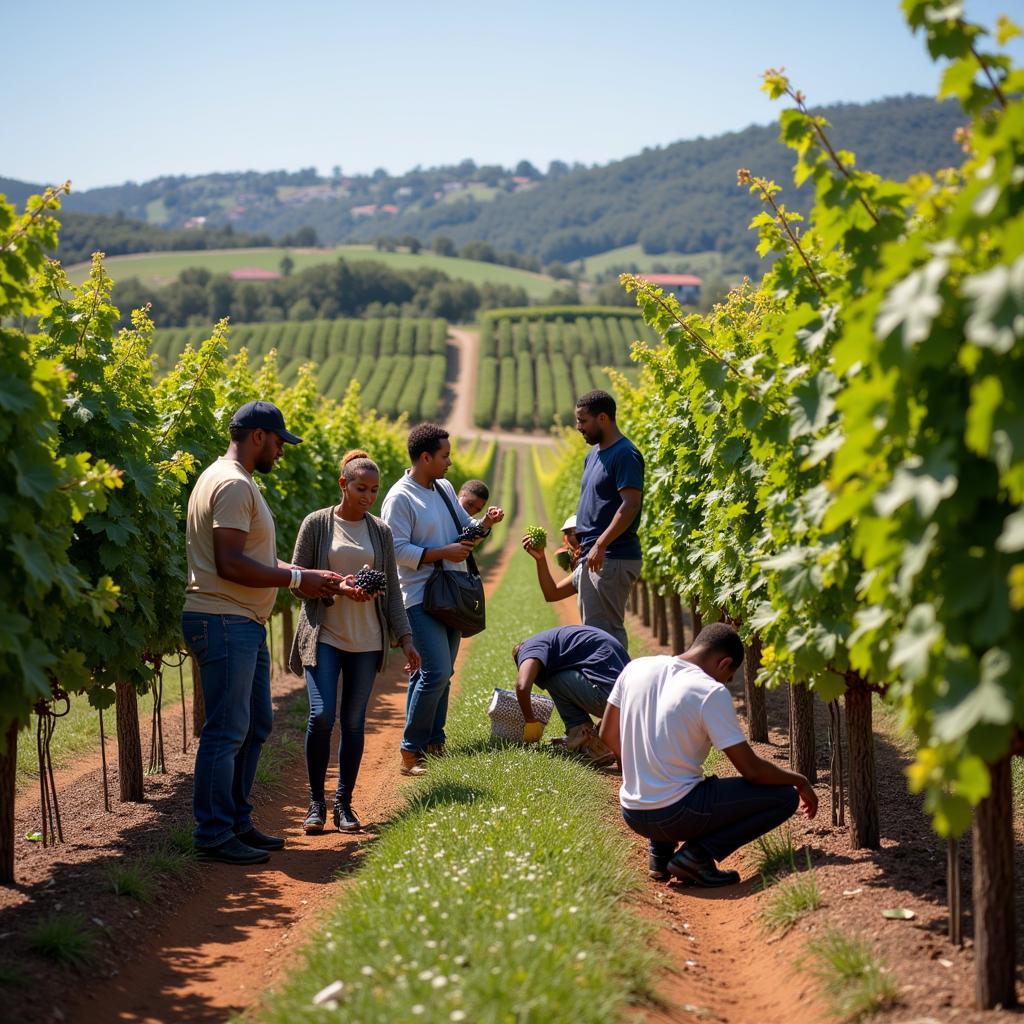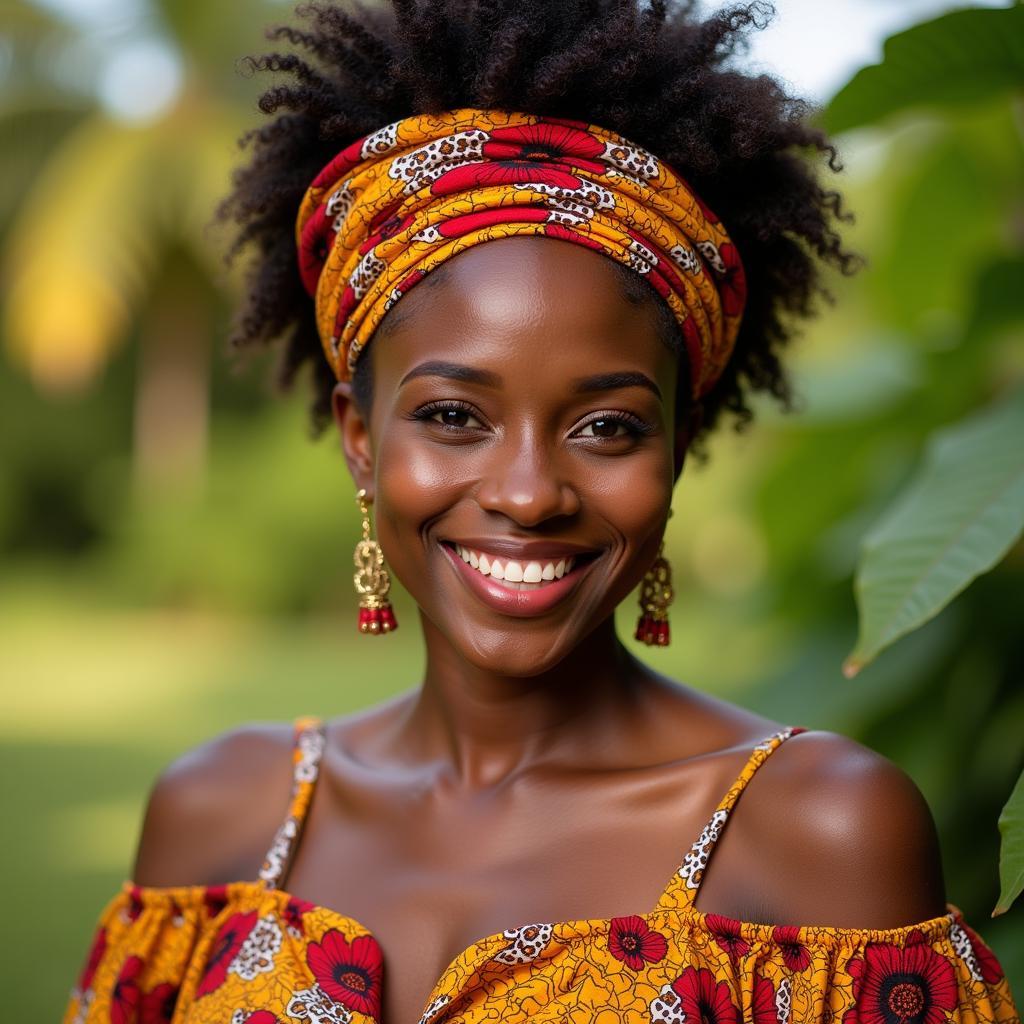Exploring the Vibrant African Kazwa Celebration
The African Kazwa Celebration is a vibrant and unique tradition found in various communities across the continent. It’s a captivating blend of music, dance, and storytelling, deeply rooted in the cultural heritage of the people. This article delves into the fascinating world of the Kazwa celebration, exploring its origins, significance, and the different ways it is observed across Africa.
Unveiling the Origins of the African Kazwa Celebration
While pinpointing the exact origins of the Kazwa can be challenging due to its oral tradition, it’s believed to have ancient roots tied to harvest festivals and celebrations of community. The Kazwa often serves as a way to connect with ancestors, honor the spirits of the land, and express gratitude for the blessings of nature. The celebration’s name, “Kazwa,” itself varies depending on the specific region and language, further highlighting the diversity of its expression across the African continent.
The Significance of Music and Dance in Kazwa
Music and dance are integral to the African Kazwa celebration. The rhythmic beats of drums, the melodic tunes of traditional instruments, and the energetic movements of the dancers create a powerful and immersive experience. These elements not only entertain but also serve as a form of communication, expressing emotions, sharing stories, and transmitting cultural knowledge from one generation to the next.
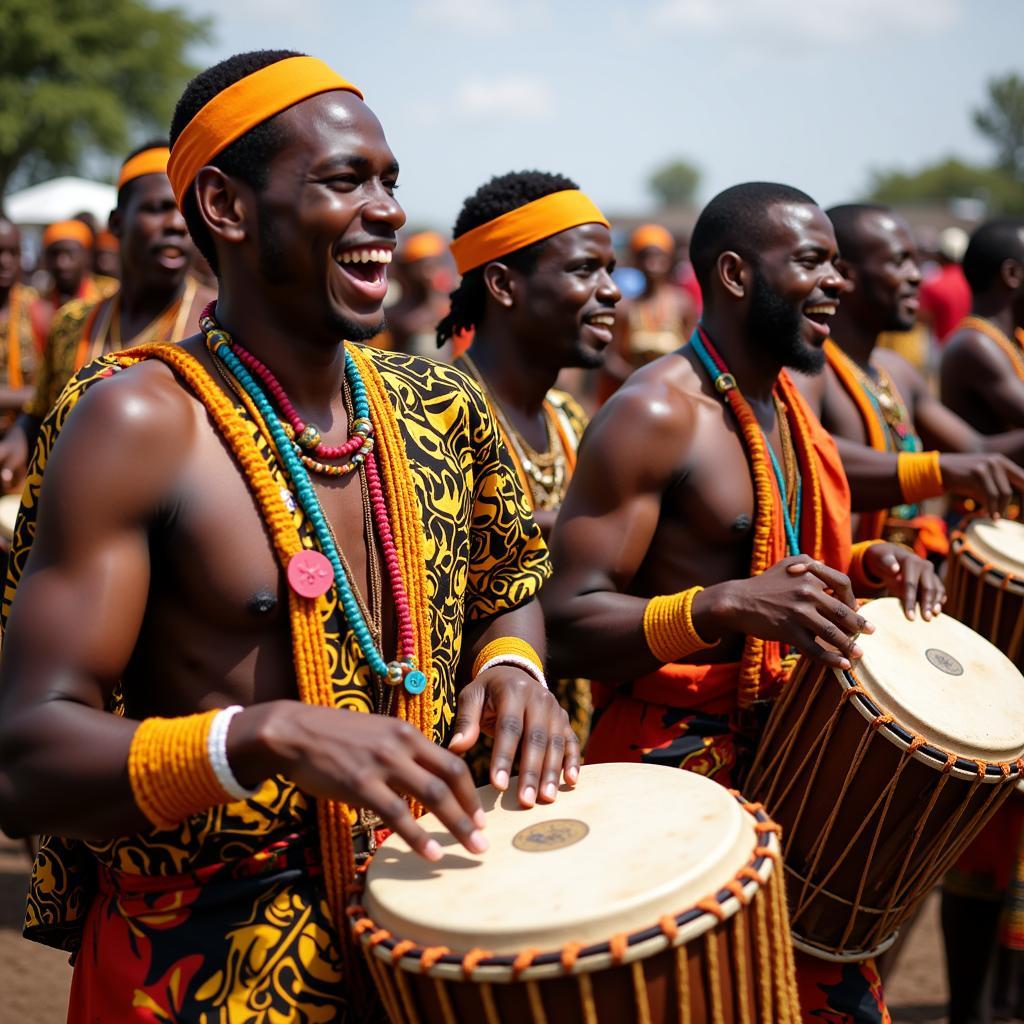 African Drummers at a Kazwa Celebration
African Drummers at a Kazwa Celebration
The specific instruments used in Kazwa vary depending on the region. Some common instruments include drums of various sizes and shapes, rattles, flutes, and stringed instruments. The dances often involve intricate footwork, rhythmic body movements, and expressive gestures that tell stories and convey symbolic meanings.
Kazwa Across the Continent: A Tapestry of Traditions
The African Kazwa celebration is not a monolithic entity but rather a tapestry of diverse traditions woven together by shared themes of community, spirituality, and celebration. While the core elements of music, dance, and storytelling remain constant, the specific rituals, costumes, and practices vary significantly across different regions and ethnic groups.
Experiencing the Kazwa in East Africa
In East Africa, the Kazwa often incorporates elements of storytelling and theatrical performances. Masked dancers may portray ancestral spirits or mythical creatures, enacting stories that teach moral lessons or recount historical events. The celebration also serves as an opportunity for community members to come together, share food, and strengthen social bonds.
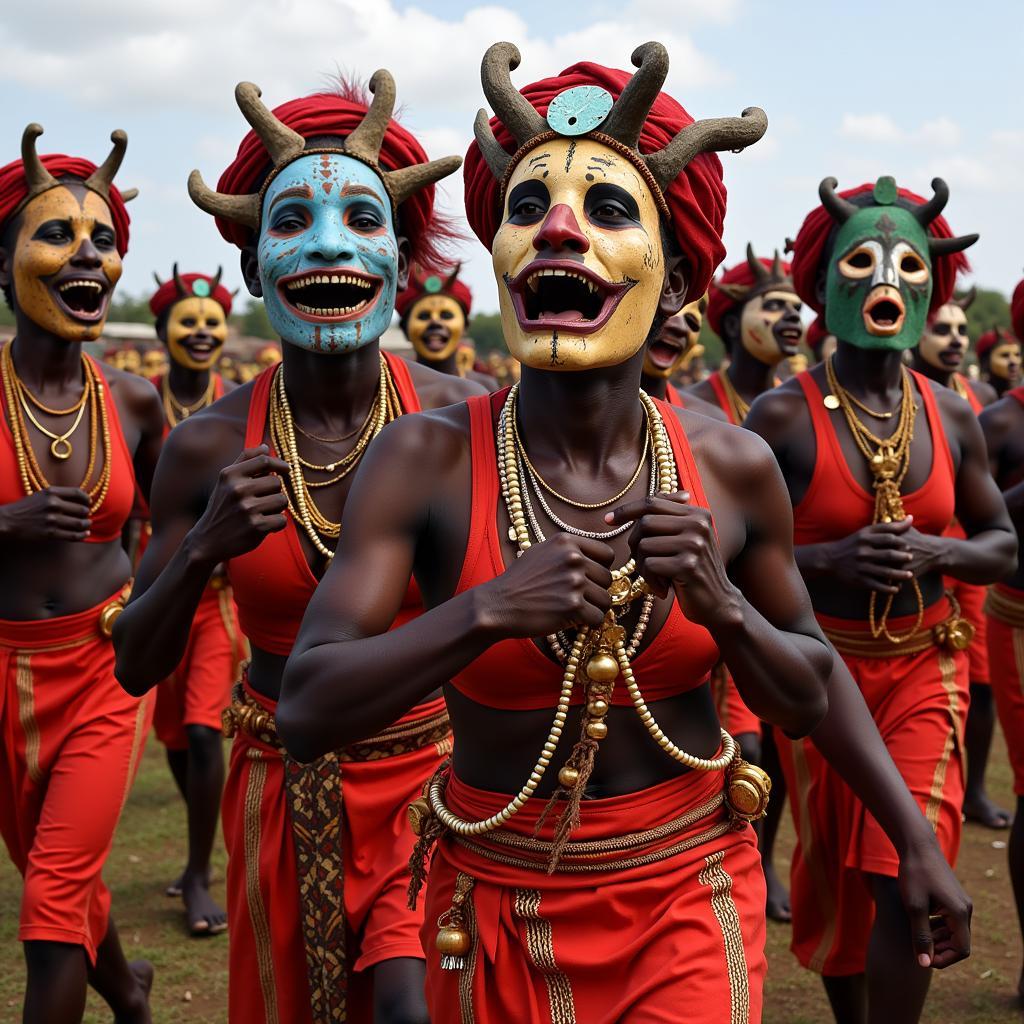 Masked Dancers in an East African Kazwa Celebration
Masked Dancers in an East African Kazwa Celebration
West African Kazwa: A Celebration of Harvest and Abundance
In West Africa, the Kazwa is frequently linked to harvest festivals, celebrating the abundance of the land and giving thanks for a successful agricultural season. Offerings of food and libations may be made to ancestral spirits and deities, seeking their continued blessings for the community’s well-being.
Southern African Kazwa: Honoring Ancestors and Community
In Southern Africa, the Kazwa may focus on honoring ancestors and reaffirming community ties. Rituals may be performed to connect with the spirit world, seeking guidance and protection from departed elders. The celebration also serves as a platform for reaffirming cultural identity and passing down traditional knowledge to younger generations.
The Future of Kazwa: Preserving a Rich Heritage
The African Kazwa celebration faces the challenges of modernization and globalization. However, communities across Africa are actively working to preserve and promote this rich cultural heritage. Efforts are underway to document traditional practices, teach younger generations about the significance of Kazwa, and adapt the celebration to contemporary contexts while retaining its core values.
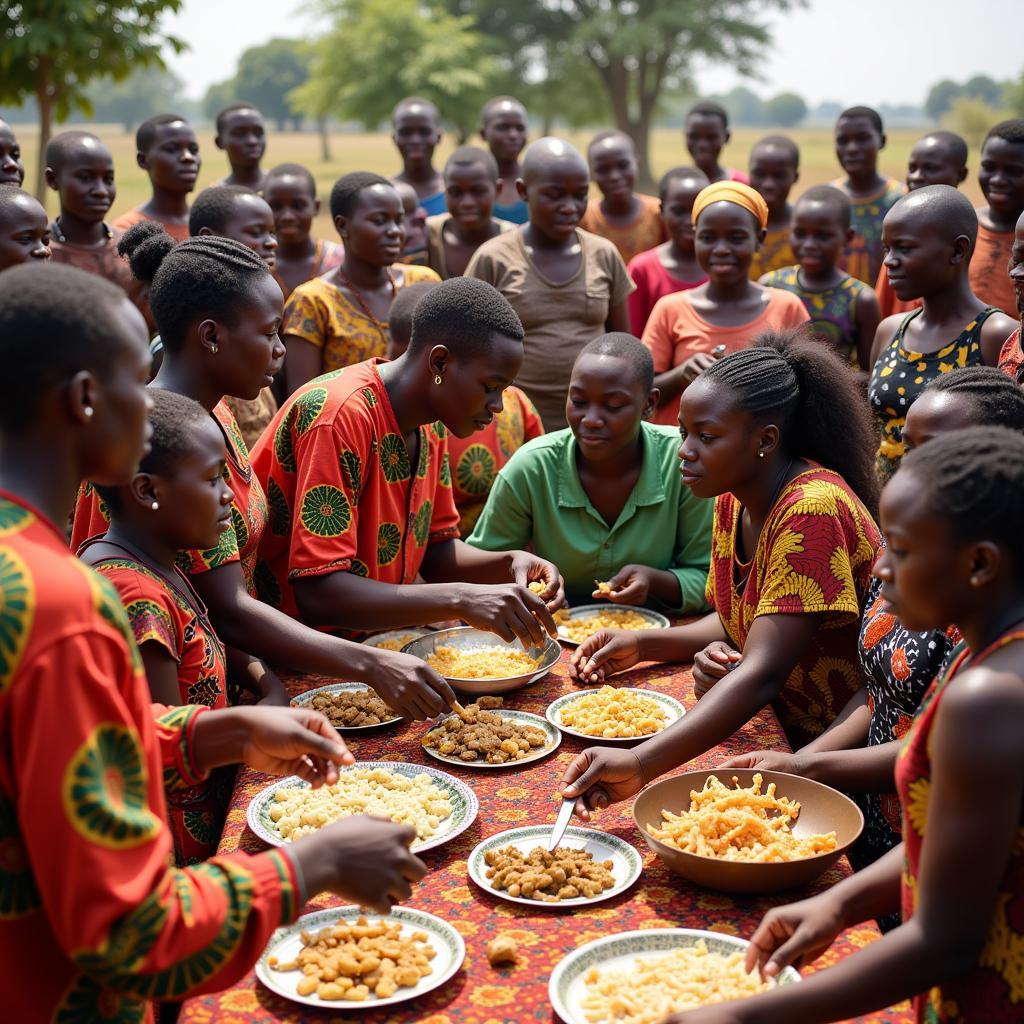 Community Gathering During an African Kazwa Celebration
Community Gathering During an African Kazwa Celebration
In conclusion, the African Kazwa celebration is a vibrant and dynamic expression of cultural identity, spirituality, and community. It’s a testament to the rich heritage of the African continent and the enduring power of tradition. From the rhythmic beats of the drums to the intricate movements of the dancers, the Kazwa offers a captivating glimpse into the heart and soul of Africa.
Expert Insights:
Dr. Adebayo Olúfẹ́mi, Ethnomusicologist: “The Kazwa is not merely entertainment; it’s a living embodiment of African history, philosophy, and spirituality.”
Professor Fatima Mbaye, Cultural Anthropologist: “Kazwa provides a crucial link between generations, ensuring the transmission of cultural knowledge and values in a dynamic and engaging way.”
Chief Nathaniel Zuma, Community Elder: “The Kazwa is the heartbeat of our community, bringing us together to celebrate our shared heritage and strengthen our bonds.”
FAQ about African Kazwa Celebrations
- What is the main purpose of the Kazwa celebration? The Kazwa serves various purposes, including celebrating harvests, honoring ancestors, and strengthening community bonds.
- Where does the name “Kazwa” come from? The name varies depending on the region and language, reflecting the diversity of the celebration.
- What are the key elements of a Kazwa celebration? Music, dance, and storytelling are central to most Kazwa celebrations.
- How does the Kazwa differ across different regions of Africa? While the core elements remain similar, specific rituals, costumes, and practices vary significantly.
- Are there efforts to preserve the Kazwa tradition? Yes, communities are actively working to document, teach, and adapt the Kazwa for future generations.
- What is the significance of music and dance in Kazwa? They serve as forms of communication, expressing emotions, sharing stories, and transmitting cultural knowledge.
- How can I learn more about specific Kazwa traditions in different African countries? Researching specific ethnic groups and regions will provide more detailed information.
For any assistance or further inquiries, please contact us at Phone Number: +255768904061, Email: [email protected] Or visit us at: Mbarali DC Mawindi, Kangaga, Tanzania. We have a 24/7 customer support team.
